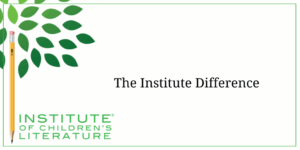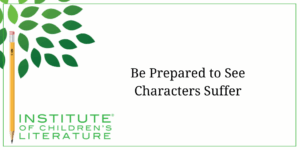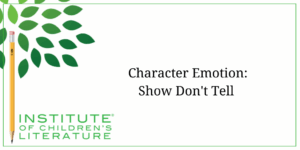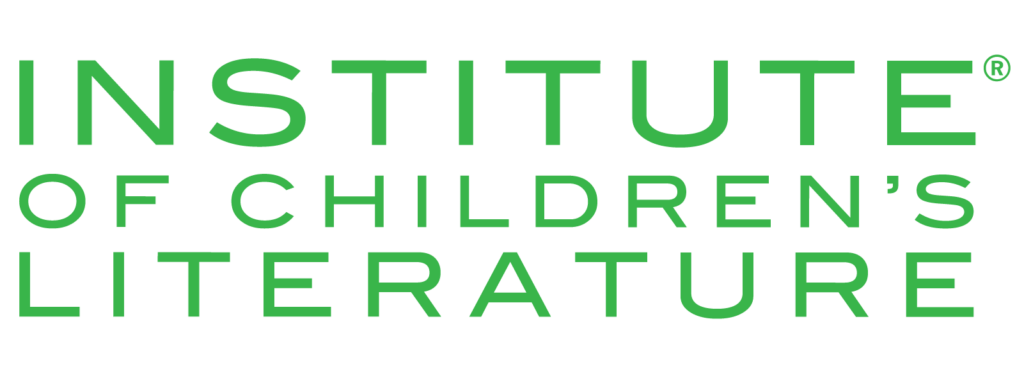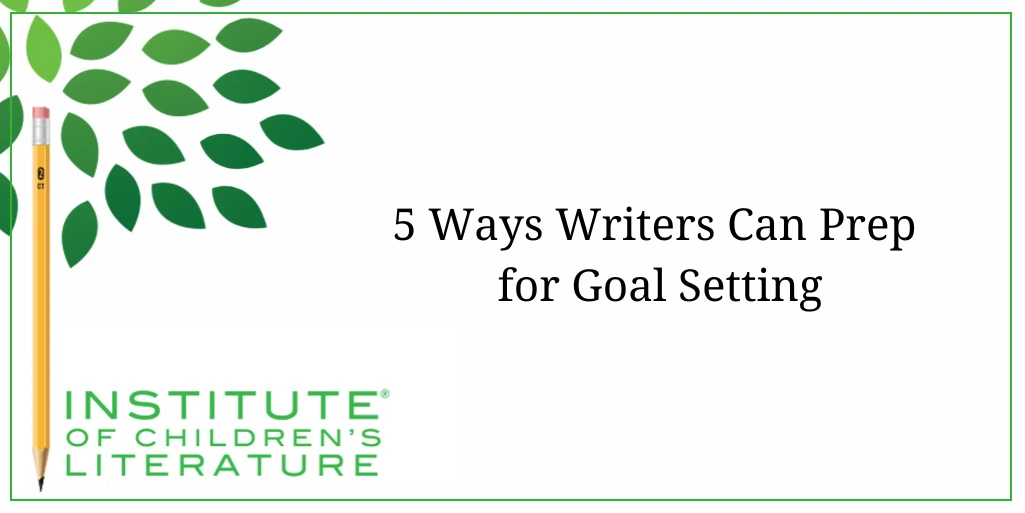
- Date: December 26, 2024
- Author: Jan Fields
- Category: Writing for Children Blog
- Tags: Goal Setting, goals, motivation
We teach our students how to write and get published!
View our Course Catalog >
5 Ways Writers Can Prep for 2025 Goal Setting
As we barrel toward 2025, it's time to think about goals. Or maybe to pre-think about goals. When the new year bursts onto the scene, I tend to be absolutely overflowing with optimism. With a brand-new year ahead of me, I could potentially do anything. And it's good to bring that kind of energy to the year ahead, but it's not completely realistic.
 Personally, I am comfortable with not always being realistic. But unfortunately, the more pie-in-the-sky my goals for next year are, the less likely I am to reach them. And when that happens, I can feel defeated or shot down by how short I fell. So before we roll on to the new year, let's prepare a little for that 2025 Goal Setting.
Personally, I am comfortable with not always being realistic. But unfortunately, the more pie-in-the-sky my goals for next year are, the less likely I am to reach them. And when that happens, I can feel defeated or shot down by how short I fell. So before we roll on to the new year, let's prepare a little for that 2025 Goal Setting.
1. Celebrate Your Victories
Hey, I'm someone who believes sometimes you should eat dessert first. So the first thing to do to prep for the new year is to make a list of everything you managed to do this year.
For me, that will include everything I did for my writing, but feel free to celebrate all the personal stuff too. Did you take a few brave steps out of your comfort zone this year? Did you overcome (or even simply survive) some hard stuff? Did you complete any writing projects? Did you take a workshop? Did you read writing books? Did you take a writing class?
All of these things deserve a moment of respect. You did a lot in 2024. We all did. And if we don't take time to think about what we accomplished, we can get down about what we didn't accomplish. So the very first thing you should do, before setting a single goal for 2025, is appreciate what you managed to get done and get through in 2024. It's been quite a year.
The celebration step will help you prepare for what comes next. It will remind you not to let whatever you didn't get done become bigger than what you did. All of us are on a creative journey but the path is never straight. It takes twists and turns. You have side trips you never expected. Sometimes it can seem to double back on itself, but ultimately all of us need to become comfortable with the crazy path creativity always takes.
Many careers have a much straighter path, but creativity seems to hate straight lines. I'd love to have a meteoric rise in my career. But writers who seem to do that, usually have loops and swirls in their path, especially early on, that you simply never hear about. This is why it's so important to enjoy and celebrate the process because if the only thing you're comfortable with is results, writing is a hard profession to pursue.
2. Compare Where You Are to Where You Hoped to Be
This step must not be your first. If it is, you'll end up never doing the first step and you'll lose the energy you need for the steps after this one. But once you've celebrated what you did accomplish this year, you'll be ready to look at those things you hoped to do but didn't.
 I make a list of the things I thought I'd do or hoped to do, but that didn't happen. This is a tough list to make. It requires courage. But the list isn't the final part of this step. What you need to do with the list is ask yourself a few questions. Were the hopes and goals you had for 2024 realistic? What kept you from reaching your goals? What do you need to change?
I make a list of the things I thought I'd do or hoped to do, but that didn't happen. This is a tough list to make. It requires courage. But the list isn't the final part of this step. What you need to do with the list is ask yourself a few questions. Were the hopes and goals you had for 2024 realistic? What kept you from reaching your goals? What do you need to change?
One reason our goals can become unrealistic is we base them too heavily on things we cannot control. For example, I can write. I can revise. I can work with critique partners and do the very best writing I can do. I can research where to send the finished pieces and send them exactly according to the requirements of the publisher or agent. But I cannot make someone accept what I've written. I cannot make the industry receptive to my ideas. I cannot make every reader love my book.
When I look at what kept me from reaching a goal, the answer is often something outside my ability. I can set a goal of submitting a proposal to a specific publisher, only to have that publishing line close. I can't affect that. I can plan to send something to an agent I met and like, only to have that agent leave publishing entirely. I can't do anything about that. If my goals are dependent on things completely outside of my ability, I am making goals that require luck. And I mostly try not to do that. That doesn't mean I don't do it. But when I do, my examination of why a goal wasn't met will help me see where the result was out of my control.
Not every unmet goal is outside of my control. Sometimes I'm a little overly optimistic about my own productivity. I'm a pretty productive writer, but I can overbook and get burned out. So sometimes I don't meet a goal simply because it was unrealistic. And sometimes I make goals without thinking through how much time they'll take. Things like research time can be hard to predict perfectly. And sometimes I think I'll get through a learning experience quicker than I ultimately manage.
So sometimes what kept me from a goal is me. But the answer is rarely, “drive myself harder.” Sometimes it's “give myself more space so I can accomplish those things that matter most to me.” And this brings me to the next step in my goal setting prep.
3. List What You Can Do to Improve your Goal Setting Success
There are things I can do to make success more likely, even when a measure of luck is involved. I can improve my skills. I can increase my knowledge of the business and of publishers. I can push back on those things trying to eat up my time in ways that won't make me happy or successful.
 For skill improvement, I can take writing courses. For knowledge of the business and of publishers, I can watch for workshops specific to those things. Many workshops and classes focus on skill building, as they should. Without skills, we will not be a success. But I also need information. I need to better understand the markets where I desire to be published. I need to research publishers (and possibly agents). And I need to read books published in those areas—recent books. Without that step, I risk writing books for the market as it existed a decade ago instead of how it exists today.
For skill improvement, I can take writing courses. For knowledge of the business and of publishers, I can watch for workshops specific to those things. Many workshops and classes focus on skill building, as they should. Without skills, we will not be a success. But I also need information. I need to better understand the markets where I desire to be published. I need to research publishers (and possibly agents). And I need to read books published in those areas—recent books. Without that step, I risk writing books for the market as it existed a decade ago instead of how it exists today.
Also, I just need to write. I need to write for publication. And I need to write for enjoyment. I need to write challenging things like poetry that I'll probably never publish. I do this because writing poetry forces me to build something word by word. It makes me look at moments and things in new ways. It makes me a better writer, even if not a better poet.
I write short stories for the same reason. Short stories force me to really understand plot. It makes me learn to build characters in a few words. It pushes me to get better at putting action on the page. These are all benefits I carry with me when I write a novel, a chapter book, or even a picture book. I write because it's essential to being a writer.
4. Research Things That Can Support Your Goals
The last pre-goal setting step for me is research. I look into what workshops might be available next year. I start exploring different learning options. I may investigate which writing books might help me learn more about specific areas so I can plan a list of books to buy and read.
 Now, for me, money is definitely a consideration. So during the research step, I'm looking at costs as well. I want to look at cost vs. possible benefit. If I see a workshop by an agent I'd like to work with, but the topic isn't going to help me and the workshop costs a lot of money, I will have to think hard about it before putting it on my list of things to do next year. I'm not making a list of things I am definitely going to do. I am making a list of options. Some will be pie-in-the-sky options because they require a lot of travel and other expenses. Some are doable, but time-consuming. Some are easy. But the list will be long.
Now, for me, money is definitely a consideration. So during the research step, I'm looking at costs as well. I want to look at cost vs. possible benefit. If I see a workshop by an agent I'd like to work with, but the topic isn't going to help me and the workshop costs a lot of money, I will have to think hard about it before putting it on my list of things to do next year. I'm not making a list of things I am definitely going to do. I am making a list of options. Some will be pie-in-the-sky options because they require a lot of travel and other expenses. Some are doable, but time-consuming. Some are easy. But the list will be long.
In a way, I'm making myself a menu, so that start my goal setting for 2025, I'll have this menu of possible support activities to help me reach my goals. For example, if one of my goals is to complete a middle grade ghost story, then I'll choose things from my list that would help support that. I may go to a horror workshop (even if it's expensive) if it focuses on middle grade and is led by people whose work I admire.
If one of my goals is to try to write one short story or picture book each month, then the things I choose from this pre-goal setting menu will be things to support that goal. Not everything I've researched will be all I need when I actually choose the goal. The goal, for instance, of writing one picture book manuscript each month will require some management of my time. I'll need to block out time to do this.
 5. Know What You Love
5. Know What You Love
I will let my writing loves leak over onto my pre-goal setting planning. For instance, maybe I know that 2025 will include some kind of picture book goal, because I've developed a fascination for these tiny literary jewels, I will let that affect the choices I make as I'm making these support activity lists, I may include some websites to study about writing picture books.
Maybe I'll even put in some brainstorming time for picture book ideas. I might also spend some time reading picture books now to help me be ready when I undertake the goal in 2025. I may look at writing conferences that include strong picture book workshops. I may consider picture book challenges; I'll at least know what kinds of picture book challenges are out there. Then when I create my goal list, I'll be ready to begin the work of reaching those goals.
Summing Up and Starting Up
Goal setting is a good way to help you focus in the new year. Having goals can help you avoid a lot of dithering about what you should do next. Preparing for that goal setting can help you choose goals that are challenging but doable so that next year when you're looking over what you've accomplished, you have more to celebrate than you ever expected.
Related Articles for Goal Setting
With over 100 books in publication, Jan Fields writes both chapter books for children and mystery novels for adults. She’s also known for a variety of experiences teaching writing, from one session SCBWI events to lengthier Highlights Foundation workshops to these blog posts for the Institute of Children’s Literature. As a former ICL instructor, Jan enjoys equipping writers for success in whatever way she can.

